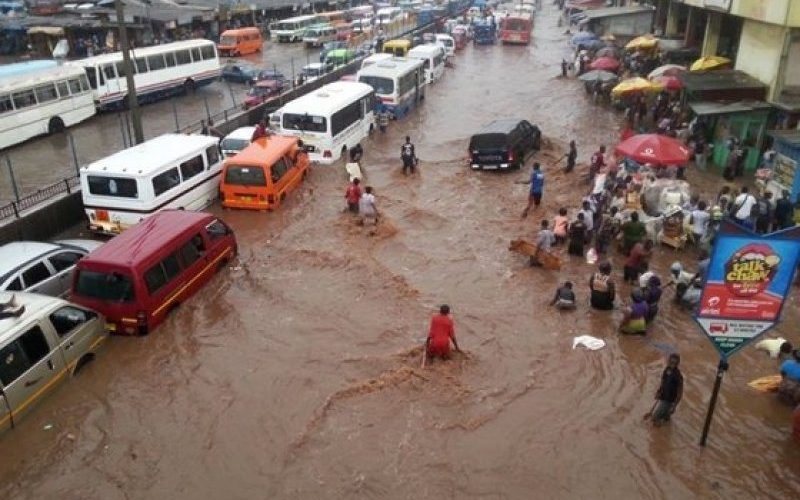Background Information
A disturbing mix of flood hazards are present in the capital city of Ghana, Accra. The city has annual floods that result in a disturbing loss of lives and livelihoods. These perennial floods come with the onset of the rainy season in June each year and can be traced back to a core failure of city planning processes, waste management efficiency and civic recalcitrance towards responsible waste management.
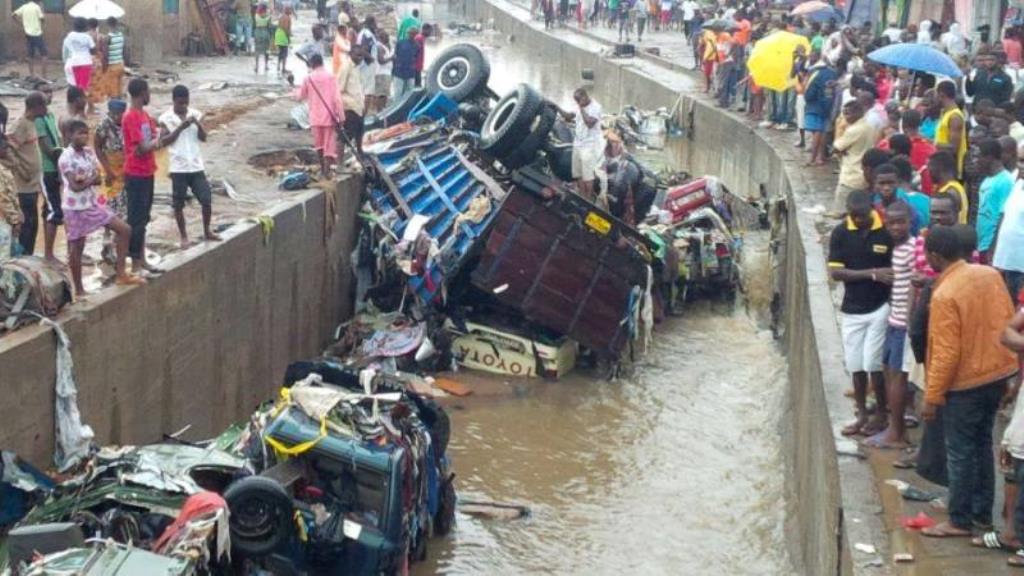
Background Information
A disturbing mix of flood hazards are present in the capital city of Ghana, Accra. The city has annual floods that result in a disturbing loss of lives and livelihoods. These perennial floods come with the onset of the rainy season in June each year and can be traced back to a core failure of city planning processes, waste management efficiency and civic recalcitrance towards responsible waste management.

Photo: Flood cause-effect: Drainage blocked at Kwame Nkrumah Circle. Accra, Ghana. Image Credit: News Ghana
The Kwame Nkrumah Circle in Accra, commonly known just as “Circle” by locals, is a sprawling transportation hub where thousands of commuters connect with mass transit buses, taxis and passenger buses to go about their daily movement.
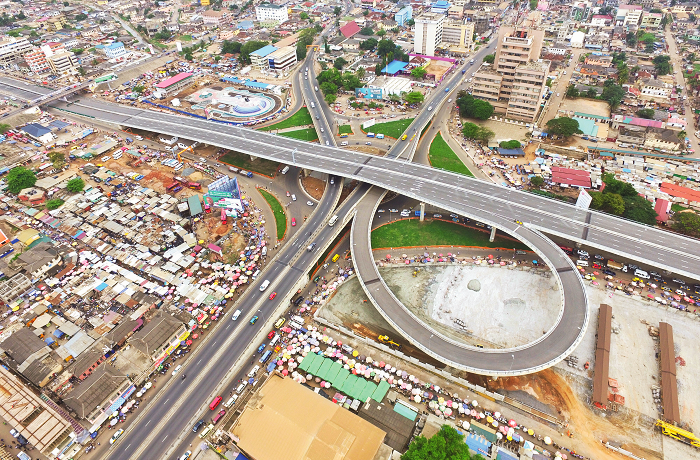
Photo: Kwame Nkrumah Interchange (Circle). Accra, Ghana. Image Credit: Douglas Anane-Frimpong
A consequence of this heavy human traffic is the accumulation of waste produced by people in the form of rubber bags, food waste from vendors, disposable packaging and all forms of undesirables. These undesirables end up clogging gutters and blocking run-off water routes, particularly the Odaw River located at the Kwame Nkrumah Interchange; a major water route, which when clogged, contributes to significant flooding.
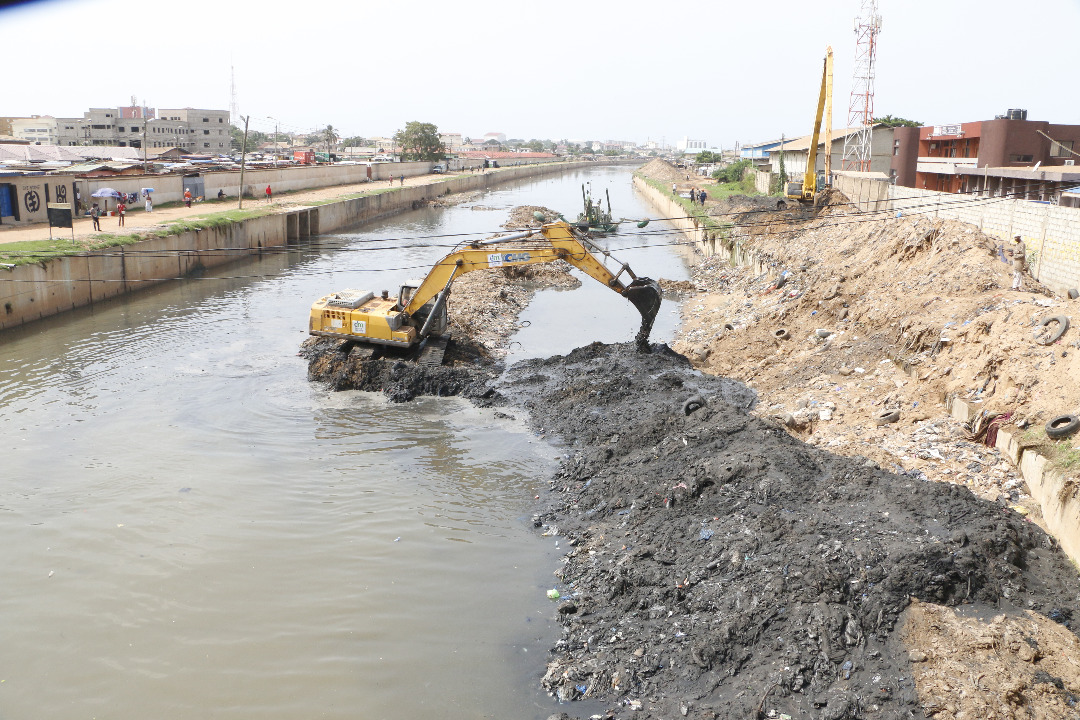
Photo: De-silting of Odaw River, Kwame Nkrumah Interchange (Circle). Accra, Ghana. Image Credit: Citi Newsroom
One particularly devastating flood disaster occurred on June 3rd 2015 in Accra, Ghana at the Kwame Nkrumah Interchange. Flooding from continuous rainfall triggered an explosion at a fuel station that led to over 150 deaths.
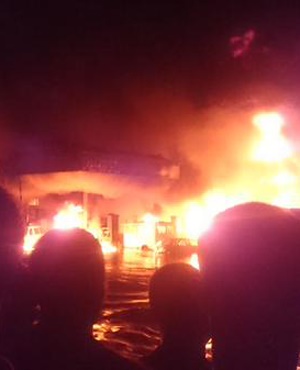
Photo: Rains and Living Hell Fire at GOIL filling station – Kwame Nkrumah Circle during flood on 3rd June 2015. Accra, Ghana. Image Credit: Walter Adamah, Twitter
On this fateful day, June 3rd 2015, people finding shelter from torrential rain at a fuel station were instantly vaporized when a massive fire engulfed the area; the fire’s cause was attributed to flood effects.
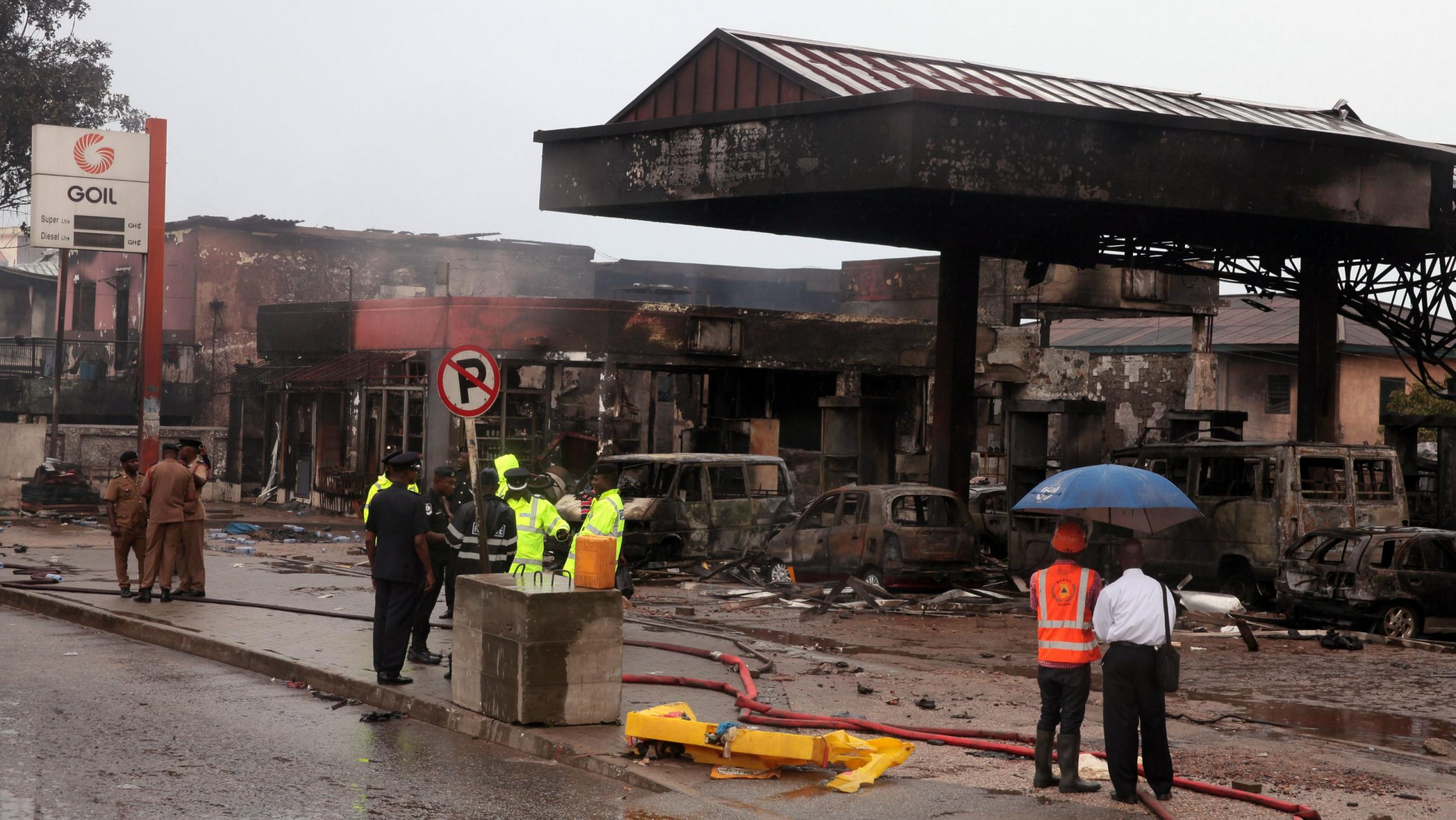
Photo: Burnt out shell of GOIL filling station, Kwame Nkrumah Circle, following June 3rd 2015 fire. Accra, Ghana. Image Credit: Christian Thompson/AP
The wider conversation around environmental management in the form of efficient city planning and urban zoning coupled with responsible waste management with respect to impact analysis continues. In a country racked by wanton corruption and irresponsible and self-seeking decision making by administrative officials, one can identify this undesirable perennial flooding situation as metaphorical ‘Tears of a Nation’.
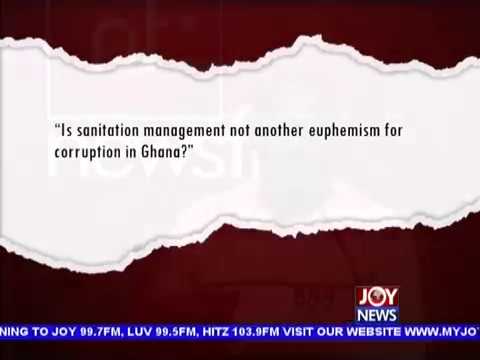
Photo: Sanitation, euphemism for corruption in Ghana? Image Credit: MyJoyOnline TV – Ghana
Introduction
The West African republic of Ghana faces repetitive annual floods with the onset of June rains. . . The result of poor administration? A general sense of apathy to the environment? Poor planning? It speaks of a general state of civic dissatisfaction with the increasing cost of living coupled with the foreboding woes of floods.
This piece is presented in its original French, as the fullest comprehension of the content relies on the words and structure of the language. However, an English translation and has been included for greater understanding.
Les Larmes D’Une Nation
Écouter le grondement de tonnerre !
Regardez les nuages noirs qui couvrent le ciel
Nous vivons dans des temps sombres
Des périodes sombres, Littéralement. . .
La fourniture d’électricité stable, un myth.
Approvisionnement de régulier en eau, c’est inexistant.
C’est triste!
Vivre comme c’est l’âge des pierres dans le 21e siècle. . .
Chaque jour, ils nous trompent
Allumer votre radio et entendre les politiciennes corrompus,
“La croissance budgétaire prévu et appelée à augmenter dans les mois prochaines …”
Ils disent beaucoup mots, mais vraiment rien dire du tout!
L’homme de la rue ne voit rien de quoi ils parlent
Il voit la faim
L’écrasante majorité des gens ont la faim et la pauvreté
La pauvreté sans fin
Les politiciennes poussent plus gros.
Leaurs demeurés grossissent
les fils de la Mère Ghana
Voleurs et pillards. Nous avons rompu son coeur.
Avez-vous déjà vu une mère violée par ses enfants encore plus encore? Pensez-y.
Quelle horreur !
Chaque jour, regardez le gros titres des journaux,
La corruption, des calamités, les incendiaires et les inondations
La source des inondations?
Les larmes débordantes de la Mère Ghana !
(English Translation)
Tears of a Nation
You hear the thunder rumbling?
Do you see the storm clouds covering the sky?
We live in dark times.
Literally dark times,
Steady electricity supply, a myth
Steady potable water flow, a luxury
It’s sad
Living like it’s the Stone Age in the 21st century
Each day, they lie to us further
Turn on your radio and listen to the corrupt politicians
“Budgetary growth looks to rise in upcoming months”
They say plenty words, but mean nothing at all
The man on the street sees no projected growth!
He sees suffering, he feels Hunger! (? capital meant?)
Sickening, unending hunger
The politicians grow fatter,
Their mansions grow bigger
The sons of Mother Ghana,
Robbing, plundering, breaking her heart
Have you ever seen a mother raped over and over by her children?
Think about this . . . What a horror!
Look at the headlines of daily newspapers
Corruption, calamities, fires and floods!
The source of these floods?
The overflowing tears of Mother Ghana

Theo believes in Lean Growth and Entrepreneurship. He is interested in cultures that promote initiative taking, continual learning and creative thinking.


